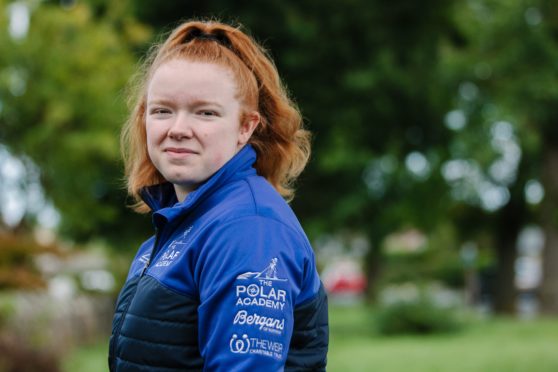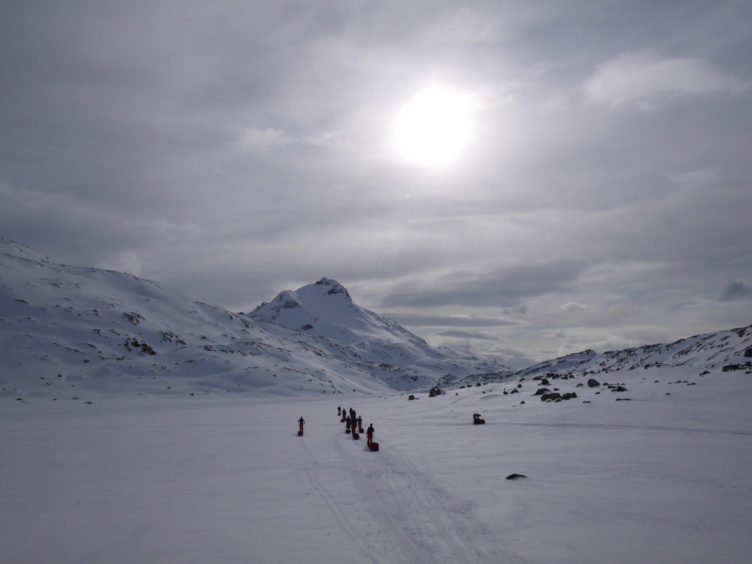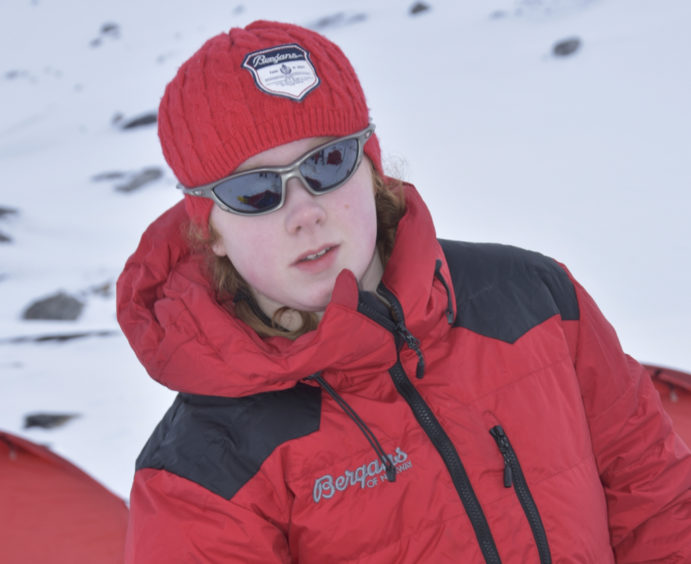
It was to be one of the best nights of her life, instead it became the worst as a terrorist unleashed carnage at a pop concert.
Iona Somerville was just 30 seconds from death when a suicide bomber detonated a shrapnel-laden device as hundreds of youngsters and their families were leaving an Ariana Grande concert in the Manchester Arena.
The atrocity, on May 22, 2017, left 22 dead and 600 adults and 340 children injured or maimed. Hundreds of others endured psychological trauma.
The scenes Iona witnessed left her on the verge of suicide but the then 16-year-old, who has never spoken publicly about the night, has clawed her way to recovery.
And now Iona – who had graduated from Scotland’s Polar Academy with an expedition in Greenland a year before the attack – is to honour its victims by becoming the youngest member of a pioneering five-strong Antarctic expedition led by UK Paralympic gold medallist Karen Darke.
The intrepid team is already training for the 79-mile challenge in the most hostile environment on the planet. It will see a new “Pole” – dubbed the Pole of Possibility – planted, with the backing of explorer Sir Ranulph Fiennes.
Iona, 19, a qualified sports therapist from Edinburgh, told The Sunday Post: “After the bombing I never thought I would have the confidence to go to Antarctica. But every step of the 79 miles I take will be for each and every one of the 22 who died. The Pole of Possibility encourages others who have suffered physical or psychological trauma to find their own inner resilience and confidence.”
Karen said: “An expedition I took at school transformed my life and gave me the resilience to overcome my accident when I was paralysed. I have had multiple traumas that have been physical but have become emotional. Iona has experienced that as well and I really resonate with her.”
Reliving her ordeal, as the survivors prepare for the public inquiry into the attack, due to begin in September, Iona said: “I went to the concert with my friend and his dad. We got a quick security check and then went to our seats, on the top tier. The foyer – where the bomb later went off – was directly below us.
“The concert was packed and everyone was off their seats dancing. After the last song, the lights went on but we didn’t leave straight away, which was strange because my friend wanted to head to the foyer ahead of the crowds to buy merchandise. But we sat and waited for a while – only about 30 seconds. I will never know why we did that. Then, as we stood up and started to go down the stairs, the bomb went off. It was that powerful the whole floor shook.
“Those who had left the arena started to flood back in. There was mass panic. We could see people running and screaming. Terrorism went through my head because there was no other explanation for what was happening. I was worried they would be coming with guns. It was total confusion. Some security guards were telling us to get out, others were saying stay put and stay calm. About five minutes later a Tannoy announcement said there had been an incident and to please leave the arena.
“I was really scared. I thought I would die, but I couldn’t even phone my mum to tell her I loved her because there was no mobile service. When we got to the exit, security had locked the doors and there was smoke coming through. We thought we were trapped. There was a lot of screaming and crying..
“Then the doors opened. Where the explosion happened was right in front of us. Security were directing us to another exit and telling us to run. Through the smoke I saw quite a lot of bodies and blood and bits of bolts and nails. It was like a war zone. I went into that concert as a child and came out into a war zone.
“Outside on the main steps there were people bleeding and other desperate people trying to get into the arena to look for loved ones. We managed to get to the car and I burst into tears. We still weren’t sure what happened but later it came on the news. I realised that if we had left that 30 seconds earlier we would have been in the foyer when the bomb went off. We were 30 seconds from dying. When I finally spoke to my mum, she just started crying.
“The bombing really changed everything. I had gained such a lot of confidence from the Polar Academy. But now, every time I closed my eyes, I could see those bodies. I was having nightmares. It is hard to live with the deaths of 22 people when you are still alive. I had survivor guilt. I couldn’t live with it. I felt suicidal.”
Iona, a former pupil of Gracemount High School, sought advice from her mentor Craig Mathieson, the founder and leader of Scotland’s Polar Academy, set up to give youngsters resilience with Arctic training and expeditions.
She said: “Craig told me to see a therapist. I did. She suspected PTSD (Post Traumatic Stress Disorder). I was in therapy for 17 months. It was hard but I had to understand that what I was going through was me processing my emotions. I had to learn to live with it. The resilience I gained from the Polar Academy helped. I have turned a corner now. I am living for those who died.”
Craig, who nominated Iona for the Pole of Possibility expedition, said: “It’s for people like Iona that I started the Polar Academy. I could see the huge potential in her – her courage, kindness and leadership. With everything that happened, I couldn’t be more proud of what’s she’s doing with Karen Darke.”
Twenty-two-year-old suicide bomber Salman Adebi’s younger brother, Hashem Abedi, was convicted of 22 counts of murder in March at the Old Bailey in London and is expected to be sentenced in August.

Enjoy the convenience of having The Sunday Post delivered as a digital ePaper straight to your smartphone, tablet or computer.
Subscribe for only £5.49 a month and enjoy all the benefits of the printed paper as a digital replica.
Subscribe
 © Dave Hogan/One Love Benefit/Shutterstock
© Dave Hogan/One Love Benefit/Shutterstock 